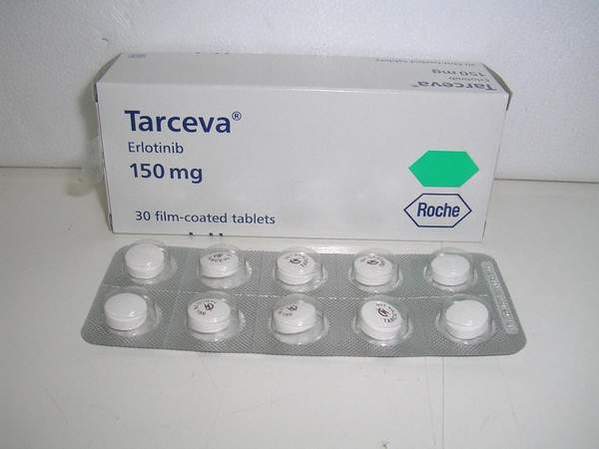FDA announced approval today of a companion diagnostic for Roche’s non-small cell lung cancer treatment, Tarceva. The Cobas EGFR Mutation Test detects epidermal growth factor receptor (EGFR) gene mutations present in approximately 10% of non-small cell lung cancers (NSCLC).
Regulators also announced that Tarceva’s indication will be expanded for first-line use in patients with metastasized NSCLC that test positive for EGFR gene mutations. In the US, Tarceva is the only drug approved for use in EGFR-positive NSCLC.
Erlotinib (Tarceva) was originally indicated as a second or third-line use in non small cell lung cancer.
Tarceva and its diagnostic were tested in the EURTAC (European Randomized Trail of Tarceva versus Chemotherapy) study—which was designed and sponsored by the Spanish Lung Cancer Group in cooperation with Roche.
In the study, patients lived longer without the disease worsening, averaging 10.4 months with Tarceva versus 5.2 months with chemotherapy alone (Tarceva is not meant to be used in combination with chemotherapy). Safety profiles were consistent with previous Tarceva trials, with diarrhea being the most common adverse event, followed by weakness, rash, cough, shortness of breath and decreased appetite.
Hal Barron, chief medical officer and head of Genentech global product development, said in a statement: “Ten to 30 percent of people worldwide with lung cancer have tumors that test positive for certain EGFR mutations. People with this type of lung cancer now have the option to use a personalized medicine as their initial treatment to help them live longer without their disease worsening.”
Tarceva is jointly marketed in the US by Roche’s Genentech and Astellas.







